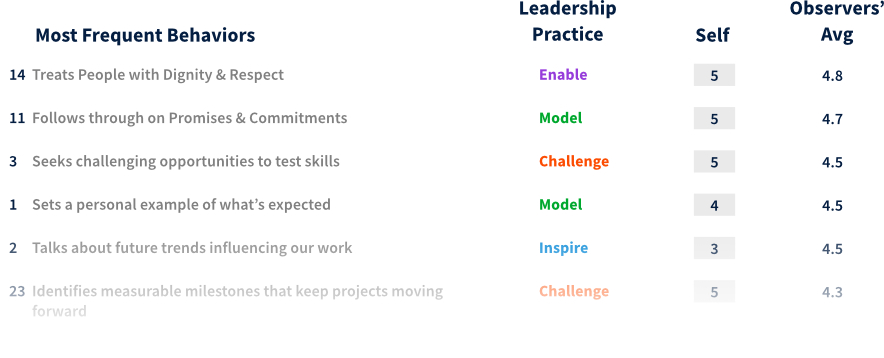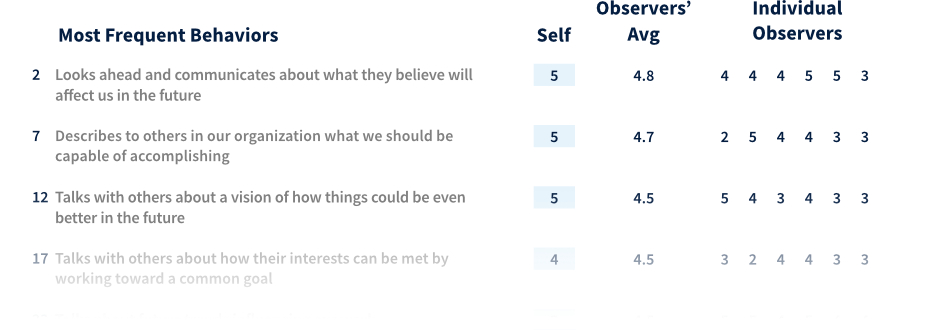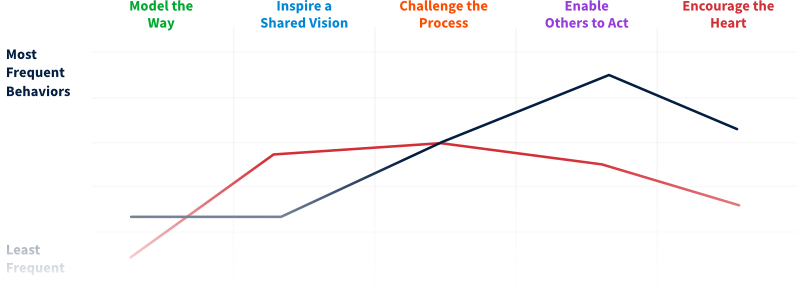
Student LPI® 360
Unlock your student’s leadership potential with insightful 360° feedback.

The resulting report provides developmental insights and real-world feedback, empowering students on their leadership journey.
The Student LPI 360 Will Help Your Students:
Understand Leadership Effectiveness
Develop Critical Skills for Success
Increase Impact and Confidence
*Data taken from Great Leadership Creates Great Workplaces
How Does It Work?

Students begin by rating themselves on the frequency with which they exhibit 30 proven leadership behaviors. This is an opportunity for self-reflection and is an introduction to the key behaviors they need to engage in to be an effective leader.
The student will then request 8-10 observers (mentors, educators, and peers) to rate the student on the frequency with which they observe each leadership behavior. These external perspectives are confidential.
The self-assessment and the observer perspectives are compiled into a comprehensive report of the student’s strengths and weaknesses and can be the basis for crafting a developmental action plan.
Impactful Activities Bring the Personalized Report to Life
Our facilitation materials equip educators with flexible, modularized building blocks to teach students how to apply The Five Practices of Exemplary Leadership, complemented by personalized feedback from their reports. Whether you’re creating a standalone training experience or integrating leadership development into your curricula, these materials empower you to make the training meaningful and relevant for your students.

Built on a Foundation of Research
When it comes to developing leaders, it takes more than theory. The Five Practices Model and the LPI assessments are built on a foundation of 40+ years of research, validated by independent studies, and trusted by academics worldwide. You can have confidence in the LPI for developing exemplary leaders at every level in your organization.
leadership case studies
independent academic research studies
years of research
LPI users' data

“Every young person dreams of doing something extraordinary. The Student Leadership Challenge provides everything this generation needs to turn a dream into reality. ”
Brian C. Warren Jr., Executive Director, Sigma Phi Epsilon Fraternity






